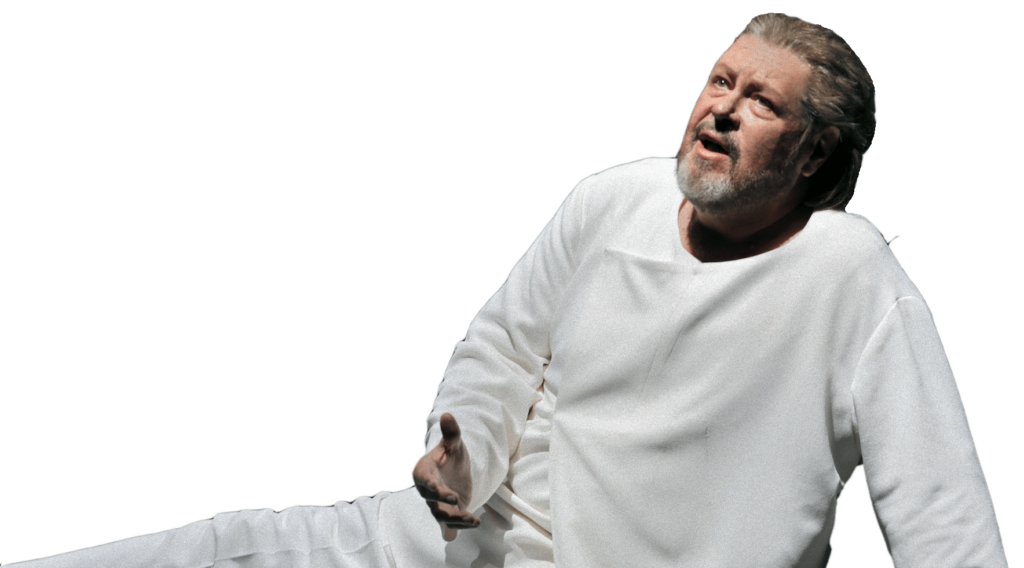Dressing up for the opera is not elitist

Music lovers (Photo: Getty)
It’s June, and the country-house summer opera festivals are now in full swing. Glyndebourne, which opened the season last month, has now been joined by its leading emulators — Garsington in Oxfordshire, The Grange in Hampshire and Longborough in Gloucestershire; and next month a newcomer, Winslow Hall Opera in Buckinghamshire, will be putting on La Traviata with much the same cast that shone last year in its greatly admired production of Lucia di Lammermoor. The gentry in dinner jackets and long dresses are already flouncing about on lawns throughout England.
It’s always seemed odd to me that people should wear evening dress for the opera in the countryside in the afternoon when they wear any old thing to attend opera in the evening in grand metropolitan opera houses, and even odder that this should be encouraged by opera festivals that say they want to attract more of the young and uninitiated. At one stage, by contrast, English National Opera actually urged its audiences to turn up in jeans and trainers to make them feel at their ease. To be fair to the summer festivals, none of them requires that their visitors come dressed as penguins, but most of them generally choose to do so.
It is a tradition started in 1934 by John Christie when he founded the Glyndebourne opera out of love for his wife, the opera singer Audrey Mildmay. Christie believed it was incumbent on audiences to dress formally out of respect for the artists who had worked so hard on their behalf. Glyndebourne, while not insisting on it, still says on its website that ‘formal evening dress is customary’; and its successors, aspiring to the same sort of social cachet that Glyndebourne acquired, do not discourage it.
I have a personal reason for not wanting to wear evening dress, which is that my dinner jacket is so old, scruffy and unfashionable-looking that I’d rather not be seen in it, and also that I have more or less forgotten how to knot a bow tie. But there is no doubt about it — people who have splashed out on tickets to a country-house opera want to make it an occasion to remember and find it all the more memorable if they are togged up in their best finery. And there is a school of thought that holds that evening dress, far from being elitist, is on the contrary a social leveller.
At the time of ENO’s ridiculous campaign to get its audiences to dress even further down than they did anyway, Rupert Myers argued in the Guardian that the dinner jacket was in fact a very democratic outfit, not only because it was cheap to buy at Marks & Spencer but also because having a dress code meant that ‘you know in advance what you’re supposed to wear, rather than having to spend some time working out what might be acceptable, only to be condemned silently for misjudging an unwritten code when you arrive’.
Some serious music-lovers maintain, however, that evening dress is worn only by people who don’t really like opera but see it as a prestigious social event like the races at Ascot. Gus Christie, the grandson of John Christie, who now runs Glyndebourne, takes the opposite view that evening dress makes audiences ‘more receptive to what they are coming to see’. Yet another argument for dressing up is that it somehow binds audience and artists together, making them all seem part of the same glamorous show. But this carries little conviction when so many modern opera productions lack any kind of glamour.
So where do I stand on all this? It doesn’t really matter; but, although I once suggested to the late Sir George Christie, Gus’s father, that he should actually ban evening dress from Glyndebourne, I have grown more tolerant with time. I may not enjoy wearing a dinner jacket myself, but I wouldn’t want to stand out or cause offence by going to Glyndebourne without one. I will therefore wear one again at Glyndebourne this year, but probably not at Longborough or Garsington where the custom is much less strictly observed. On the other hand, it would seem petty and churlish to object to other people wearing evening dress if they feel like it. It’s up to them, and why shouldn’t they?
This article first appeared in the print edition of The Spectator magazine, dated 13 June 2015

